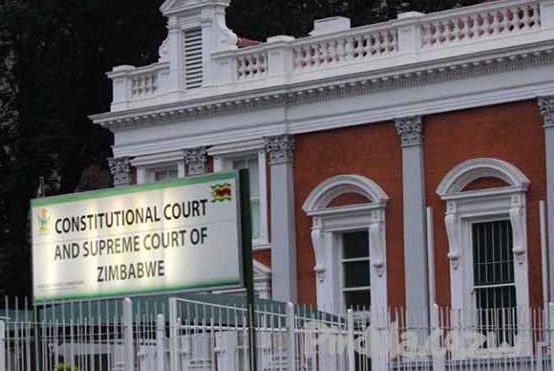
Apr 2, 2020 | News
The ICJ welcomes the decision by the Constitutional Court of Zimbabwe to invalidate the enactment of Constitutional Amendment Bill (No. 1) of 2017 in Gonese and Anor v Parliament of Zimbabwe and 4 Ors. The judgment restores important Constitutional guarantees for the independence of the judiciary in Zimbabwe.
Zimbabwe adopted a new Constitution in 2013 and one of the progressive elements of this Constitution was its provisions regulating the appointment of judicial leaders such as the Chief Justice, Deputy Chief Justice and Judge President of the High Court. These judicial leaders perform important administrative functions with a huge impact on access to justice for the public.
For example, the Chief Justice is the head of the Judicial Service Commission (JSC) and therefore, presides over processes to select and recommend candidates for judicial appointment.
The Judge President is responsible for case allocation in the High Court and therefore, selects judges to sit on cases. It is important that the procedures for appointing these judicial leaders be transparent and independent of executive control in order to maintain the independence and impartiality of judges as well as promote public confidence in the judiciary.
The 2013 Constitution ensured this by prescribing procedures which accorded the executive a constrained role in the selection and appointment of these judicial leaders.
For example, the process of selecting these office bearers was to be led by an independent Judicial Service Commission (JSC) which would publicly advertise the vacancies, shortlist candidates, conduct interviews that are open to the public and recommend candidates for appointment by the President. The President was required to appoint only from the shortlist submitted by the JSC.
In 2017, the then-President of Zimbabwe Robert Mugabe signed into law a constitutional amendment bill which sought to change these provisions and give the President the authority to select and appoint these judicial leaders without conducting public interviews and without being constrained or restricted to the shortlist provided by the JSC.
The enactment of this constitutional amendment bill was challenged in the Constitutional Court on grounds that the amendment had been adopted and enacted into law without following due process.
In its judgment, the Constitutional Court concluded that, “It is declared that the passing of Constitutional Amendment Bill (No. 1) of 2017 by the Senate on 01 August 2017 was inconsistent with the provisions of s 328(5) of the Constitution, to the extent that the affirmative votes did not reach the minimum threshold of two-thirds of the membership of the House. Constitutional Amendment Bill (No. 1) of 2017 is declared invalid to the extent of the inconsistency. The declaration of invalidity shall have effect from the date of this order but is suspended for a period of one hundred and eighty days, subject to the provisions of paragraph 1(b).”
The Court directed the Senate to conduct a vote in accordance with the procedure for amending the Constitution prescribed by s 328(5) of the Constitution within one hundred and eighty days of the order given. Failure to do so will render the declaration of invalidity of Constitutional Amendment Bill (No. 1) of 2017 final, said the Court.
Commenting on this judgment, ICJ Africa Director Arnold Tsunga said: “This is a positive judgment which underscores the vital principle of legality, particularly that changes to the Constitution must be processed and enacted in strict accordance with the laid out procedures. Respect for the Constitution, and ensuring the independence of the judiciary, are fundamental elements of the rule of law; both are advanced by this judgment.”
The decision by the Constitutional Court comes at a time when the Parliament of Zimbabwe has gazetted further proposed changes to the Constitution, which amongst other things seek to give the executive a stronger role in the selection and appointment of judges to the Supreme Court and Constitutional Court.
These proposed changes would undermine judicial independence and undercut public confidence in the independence and impartiality of the judiciary. Further, these proposed changes are contrary to international and African standards. For instance, the United Nations Basic Principles on the Independence of the Judiciary enjoin member states to ensure that “Any method of judicial selection shall safeguard against judicial appointments for improper motives.”
The African Commission on Human and Peoples’ Rights’ Principles and Guidelines on the Right to a Fair Trial and Legal Assistance in Africa further provide that, “The process for appointments to judicial bodies shall be transparent and accountable and the establishment of an independent body for this purpose is encouraged.” The ICJ therefore, calls upon the government of Zimbabwe to reconsider its decision to proceed with these proposed changes to the Constitution.
Contact
Arnold Tsunga, t: +26377728 3248; e: arnold.tsunga@icj.org
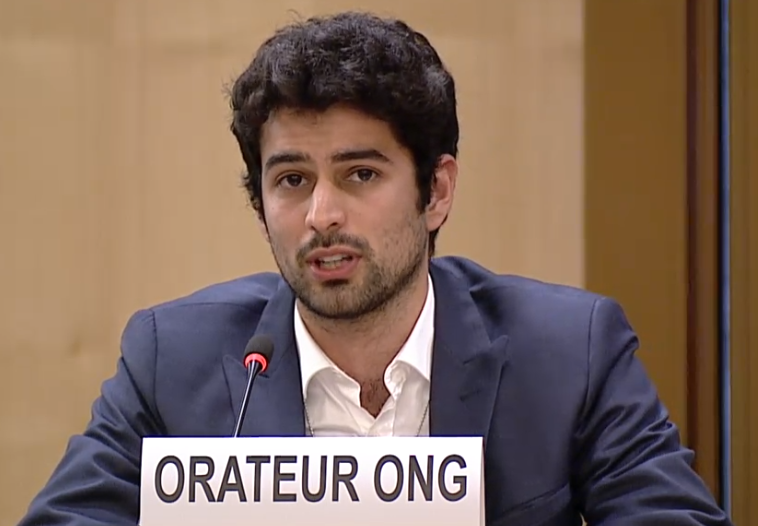
Mar 12, 2020 | Advocacy, Non-legal submissions
At the UN, the ICJ today highlighted the need for Kazakhstan to ensure the independence of the legal profession and the judiciary, in particular by ending the arbitrary disbarment of lawyers.
The statement, delivered during the adoption of the outcome of the Universal Periodic Review of Kazakhstan by the Human Rights Council in Geneva. The statement read as follows:
“The International Commission of Jurists (ICJ) welcomes the acceptance by Kazakhstan of the recommendations by Denmark (138.83), France (139.85), Mexico (139.86) and Austria (139.113) to uphold the rule of law and to protect the independence of the legal profession and the judiciary.
The ICJ however regrets that Kazakhstan only noted and did not explicitly support the recommendation by Czechia to “take immediate measures to ensure the effective protection of lawyers, media workers, bloggers and human rights defenders against any form of harassment” (139.114).
Furthermore, based on ICJ research, we regret to report that Kazakhstan’s assertion that the accepted recommendations are “in the process of implementation” (A/HRC/43/10/Add.1, para. 4) is simply not correct.
On the contrary, the ICJ considers that the independence of the legal profession is being actively undermined in the country.
The ICJ expresses particular concern at disbarment proceedings initiated by the Ministry of Justice, including the recent disbarment of Amanzhol Mukhamediarov and Yerlan Gazymzhanov.[1]
Finally, the situation is exacerbated by a Law on Advokatura that does not require the Bar Association’s authorisation to initiate disbarment proceedings.
To actually implement the recommendations accepted by Kazakhstan, ICJ calls on Kazakh authorities to stop all harassment of lawyers through disciplinary proceedings, readmit the lawyers unduly disbarred and reform its Law on Advokatura in line with international standards on independence of the legal profession.”
[1] See ICJ statement at https://www.icj.org/kazakhstan-disbarment-of-erlan-gazymzhanov-and-amanzhol-mukhamediarov-undermines-the-independence-of-the-legal-profession-icj-says/ .
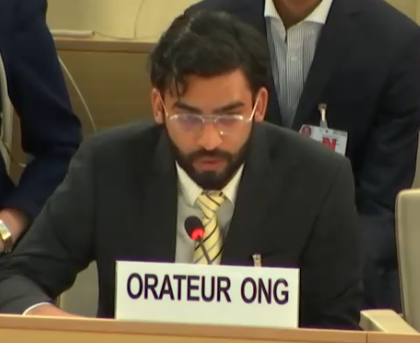
Mar 6, 2020 | Advocacy, Non-legal submissions
The ICJ, speaking in a general debate at the UN Human Rights Council in Geneva, urged all States to work together towards adoption of a treaty on business and human rights, and highlighted threats to the independence of the judiciary in Europe.
The statement, delivered in the general thematic debate at the Council, read as follows:
“The International Commission of Jurists (ICJ) welcomes the report of the 5th session of the Intergovernmental Working Group (A/HRC/43/55) in charge of the elaboration of a treaty on business and human rights and notes the consensual nature of its conclusions and recommendations. Abuses of human rights and environmental degradation caused with the involvement of business enterprises have so far been met with very limited action by businesses and States.
The ICJ considers that the revised draft treaty is a serious and advanced proposal that is suitable for negotiations and thanks the Chair-Rapporteur for its efforts and leadership in this process.
The ICJ urges States that are not yet actively involved in the negotiations to join the growing number of States that are active for a final push.
The ICJ also draws the attention of the Council to serious threats to independence of judges and lawyers in European countries.
In Poland, judges are being disciplined merely for applying EU law, under legislation curtailing their freedom of expression and independence.
In Turkey, independence of lawyers and judges continues to be seriously compromised, as demonstrated by the disciplinary proceedings against the Gezi trial judges launched after critical comments by the President of Turkey.
The ICJ urges the Council to give attention to these developments of extreme concern.”
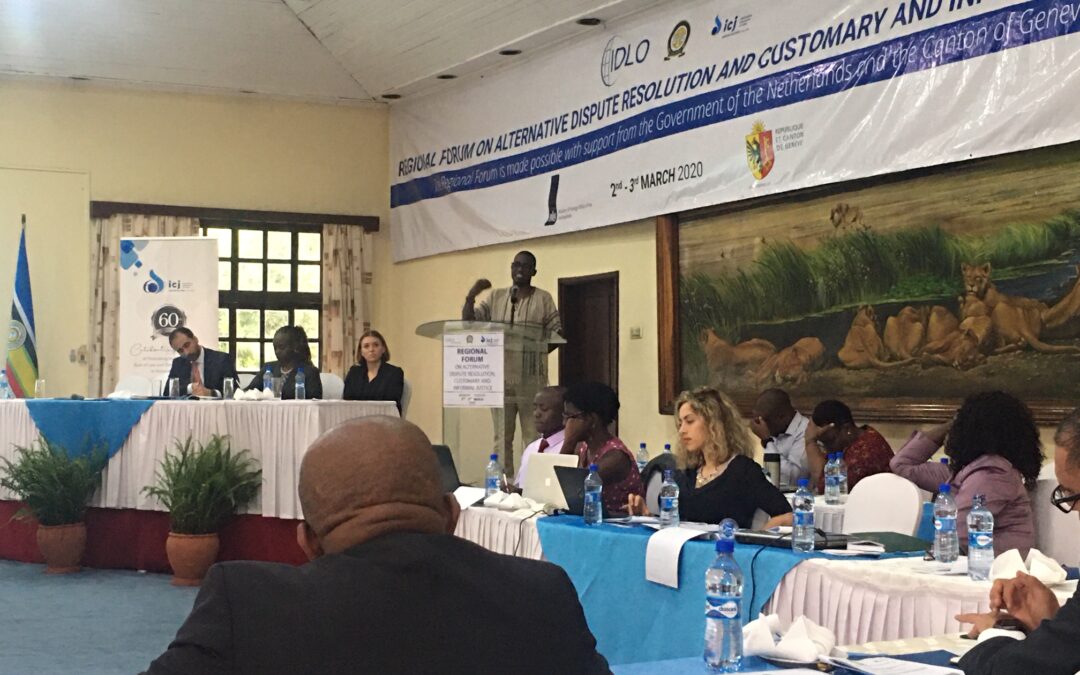
Mar 1, 2020 | Events, News
For the 10th annual Geneva Forum of Judges and Lawyers, the ICJ has partnered with the International Development Law Organization and the ICJ Kenya Section, to organise in Nairobi a high-level regional Forum on alternative dispute resolution and indigenous and other traditional or customary justice systems in Africa.
Under the auspices of the Judiciary of Kenya, the “Regional Forum on Alternative Dispute Resolution & Customary and Informal Justice: Advancing SDG16 and Pathways to Justice” will provide a platform to allow for a deeper reflection on access to justice through alternative and indigenous or other traditional or customary justice systems, providing greater insight into local realities, concerns and approaches and exploring existing lessons, illustrations, and good practices.
The Forum will also facilitate the identification of culturally appropriate, people-centered, sustainable and effective paths for policy and programming that reduce existing justice gaps as well as address challenges in diverse contexts.
Invited justice champions from national governments, the formal and informal justice sectors, and civil society will share insights on ongoing justice sector reforms and policy development that aim to provide alternatives to or complement formal courts, curb rights-abrogating practices, and contribute to inclusive and peaceful societies.
A concept note is available in PDF format here: NairobiConferenceConceptNote
The programme is available in PDF format here: NairobiConferenceAgenda
The final report of the Forum is available in PDF format here.
The Forum is made possible with support from the Government of the Netherlands and the Republic and Canton of Geneva.
For further background on the ICJ Geneva Forum of Judges and Lawyers, and its ongoing global project on indigenous and other traditional or customary justice systems, click here.
A compilation of international sources is available here.
For more information contact matt.pollard(a)icj.org
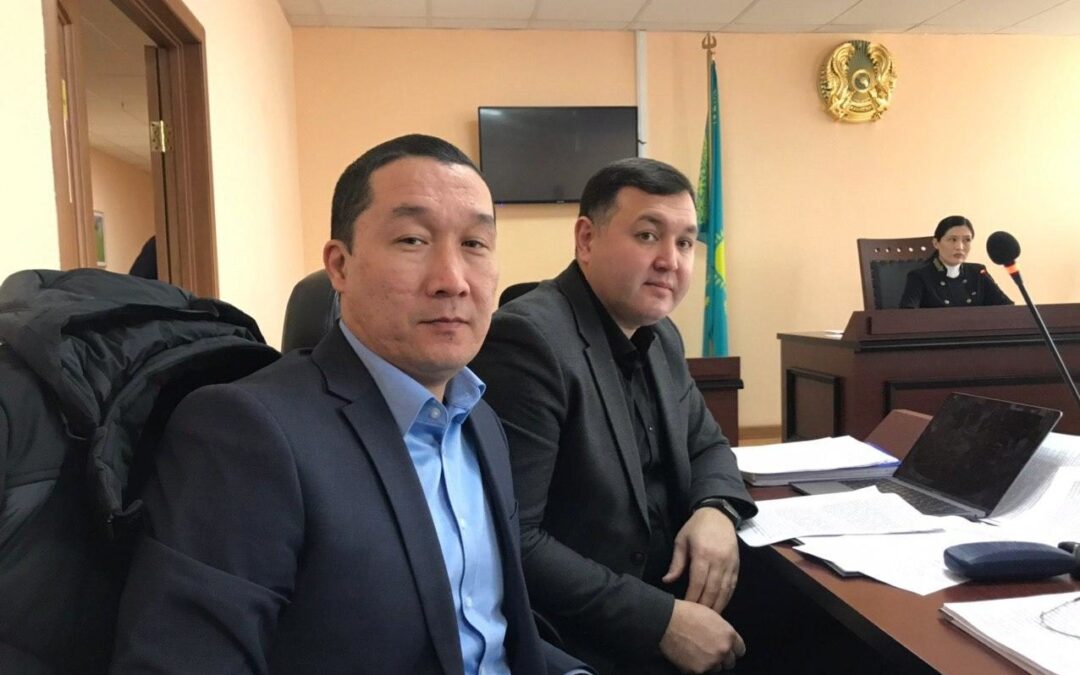
Feb 28, 2020 | News
The ICJ expresses concern at the decisions of 26 February of Yesil and Saryarka district courts of Nur-Sultan to disbar two lawyers, Erlan Gazymzhanov and Amanzhol Mukhamediarov, at the request of the Ministry of Justice.
These disbarments are a blow against the ability of lawyers to exercise their profession independently.
The immediate cause for the action was that the lawyers had published clips from a video recording of court proceedings in which the lawyers had acted for the defence, showing the judge behaving in an inappropriate way, on social media. The video clip was published after the proceedings had been concluded.
Following this publication, the judge was disciplined by a specialised judicial body for her behaviour during the court proceedings. At the same time, the judiciary addressed the Ministry of Justice with a request to act against the two lawyers for posting video clips on their social media pages.
The ICJ observed the court proceedings for disbarment of the lawyers in both cases. The court hearings proceeded in an orderly manner. However, the ICJ was concerned that the Press Service of the Supreme Court issued a comment on social media during the hearings that cast doubt on the impartiality of the proceedings. Furthermore, the Presidents of Yesil and Saryarka district courts of Nur-Sultan published identical comments, including the rationale for the decisions of judges that considered the cases. This happened immediately after the court decisions were pronounced to the parties. The oral explanations of decisions by judges presiding in the cases differed from the comments published by the respective presidents of the courts. The proceedings resulted in both lawyers being disbarred.
The ICJ notes with concern that these severe sanctions do not follow from legislation concerning the alleged breaches. The ICJ stresses that the principle of legality requires, among other things, that any measure imposing restrictions on human rights must be applied only as provided for by laws that are expressed clearly and unambiguously. The requirement that a measure be in accordance with law refers not only to the existence of the law but also to the quality of such law, which must be foreseeable, since a norm cannot be regarded as law unless it is formulated with sufficient precision to enable the citizen to regulate his or her conduct: he or she must be able to foresee, to a degree that is reasonable in the circumstances, the consequences which a given action may entail.
Kazakhstan legislation does not contain any prohibition of publishing videos of court hearings online, let alone prescribe disbarment for such action. The only document against which the lawyers acted were the internal rules of the Department for Judicial Administration under the Supreme Court, which do not have the status of law and which neither explicitly nor implicitly suggest disbarment for posting the videos. Neither legislation nor lawyers’ ethical rules contain any penalty for publishing video of court hearings online. Therefore, the ICJ is concerned that the sanction imposed is not adequately prescribed by national law, and as such is unforeseeable and contrary to the principle of legality.
Following the request of the Ministry of Justice to apply a specific sanction against the lawyers –termination of the right to practice law – the courts considered only this sanction. This sanction is imposed for life. Bearing in mind the legal uncertainty as to the nature of the violations and the serious consequences that they entail, this sanction appears to be disproportionate.
Bearing in mind the existence of regular disciplinary proceedings before the National Bar Association that were introduced by the new law on the advokatura in 2018, the ICJ is concerned that these procedures were not utilized in these cases, which were initiated directly before the District Courts. The Ministry of Justice did not address the Bar Association’s disciplinary bodies, which makes a sham of the disciplinary bodies of the legal profession.
“We did not hear any convincing arguments in the proceedings as to why ordinary disciplinary proceedings of the Bar Association, including those related to an alleged breach of lawyers’ ethics, have not been used”, said Temur Shakirov, ICJ Senior Legal Adviser.
“In the circumstances such as these, the role of the Bar Association in assessing the conduct of its member is essential to ensuring independence of the legal profession as required by international law and standards”, Shakirov added.
The ICJ calls on the relevant authorities to restore the licences to practice law of Amanzhol Mukhamediarov and Erlan Gazymzhanov. Furthermore, the role of the Bar Association in various aspects of its independent functioning, including the disciplinary proceedings, especially where lawyers may face a disbarment should be strengthened. To this end, the ICJ calls on the Parliament of Kazakhstan to reconsider the legislative framework and remove the possibility of any executive authority to bypass the Bar Association’s competence to evaluate professional conduct of its members, including any disbarment or other disciplinary proceedings.
Disbarment-of-Mukhamediaov-and-Gazymzhanov-2020-ENG (full PDF document with backgroud information).









